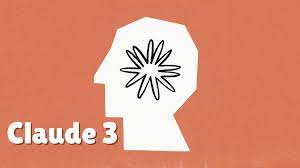Anthropic Claude 3 An Alternative of Google Gemini and OpenAI Gpt4
Anthropic asserts that Claude 3 models exhibit increased capabilities in analysis and forecasting, nuanced content creation, code generation, and multilingual conversations.


Anthropic, an AI startup founded in 2021 by former OpenAI employees, has stepped into the spotlight by unveiling its latest AI models, collectively referred to as Claude 3. This development marks a significant stride in the competitive landscape of artificial intelligence, challenging industry heavyweights like OpenAI's GPT-4 and Google's Gemini 1.0 Ultra.
Anthropic's Models
Opus, Sonnet, and Haiku. Opus, touted as the most capable among them, has demonstrated prowess by outperforming industry leaders in crucial AI benchmarks. These models showcase near-instant capabilities in a range of complex tasks, including transcribing handwritten notes, analyzing graphs, and translating languages.
Opus Outshines Competitors
In a competitive arena where benchmarks are indicative of performance, Anthropic claims that Opus stands superior to OpenAI's GPT-4 and Google's Gemini 1.0 Ultra in undergraduate-level expert knowledge and graduate-level expert reasoning tests. This achievement positions Anthropic as a formidable player, showcasing the potential of its innovative AI models.
Opus and Sonnet Accessible Globally
Anthropic has made Opus and Sonnet available in 159 countries, highlighting its global approach to disseminating advanced AI capabilities. The availability of these models on a widespread scale emphasizes Anthropic's commitment to making cutting-edge AI accessible to diverse regions.
Addressing Limitations of Claude 2
Daniela Amodei, co-founder of Anthropic, shared insights with CNBC, stating that Claude 3, especially Opus, exhibits a more nuanced understanding of risk in responses compared to its predecessor, Claude 2. Claude 2, at times, demonstrated over-restriction in its responses to sensitive topics. The quest for a highly harmless model led Claude 2 to occasionally over-refuse responses, a challenge that Anthropic sought to overcome with the development of Claude 3.
Enhanced Capabilities: Analysis, Forecasting, and Multilingual Conversations
Anthropic asserts that Claude 3 models exhibit increased capabilities in analysis and forecasting, nuanced content creation, code generation, and multilingual conversations. These advancements signal a broader scope of application for the models, extending beyond traditional benchmarks to more complex and diverse tasks.
Analyzing Images, Charts, and Technical Diagrams
An intriguing feature of Claude 3 is its ability to analyze documents such as images, charts, and technical diagrams uploaded by users. While the models can analyze various data formats, they currently lack the capability to generate images. This functionality expands the utility of the models, enabling users to leverage AI capabilities for diverse analytical tasks.
Speed and Intelligence: Opus, Sonnet, and Haiku in Focus
Anthropic underscores that Opus, while significantly more intelligent than Claude 2.1, delivers results with similar speed. Sonnet, another model in the Claude 3 family, stands out as twice as fast as its predecessor, Claude 2.1, showcasing improved efficiency. Though not as capable as Opus, Sonnet still exhibits commendable intelligence. On the other hand, Haiku, the third model, is yet to be released.
Safety Measures and Accuracy: Addressing Weaknesses
While highlighting the strengths of Claude 3, Anthropic acknowledges certain weaknesses identified in a technical white paper. Two key issues outlined are hallucinations, occurring when models misinterpret visual data, and the failure to recognize harmful content in images. Anthropic acknowledges these challenges and emphasizes its commitment to addressing them, underlining the ongoing efforts to enhance the models' safety and accuracy.
Political Context and Misinformation:
With the 2024 presidential election on the horizon, Anthropic is proactively developing new policies to govern the use of its tools in political contexts. The company recognizes the heightened risk of misinformation and bias in the media landscape and is working on new methods to evaluate how Claude 3 models respond to prompts related to election misinformation and potential misuse.
Conclusion:
Anthropic's announcement of Claude 3 and its subsequent achievements in surpassing industry benchmarks underscore the company's commitment to advancing AI technology. While recognizing imperfections and addressing safety concerns, Anthropic positions itself as a leading player in the AI domain. As AI continues to evolve, Anthropic's innovative models represent a significant leap forward, challenging established norms and contributing to the ongoing AI revolution.